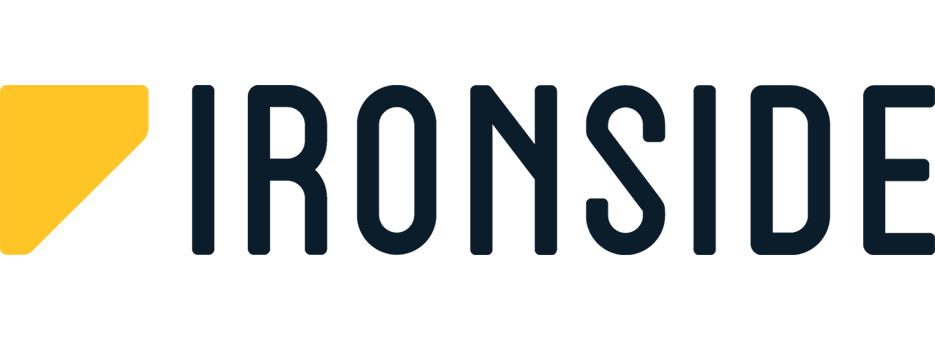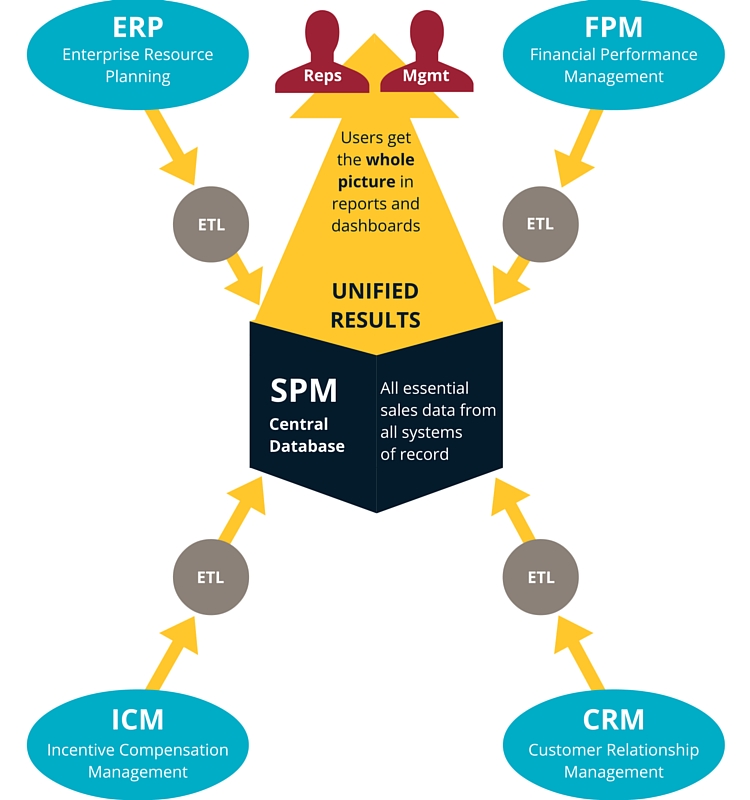Sales Data Strategy: Your One Source of Truth
I belong to many Sales Operations and Sales Compensation social media groups. Recently, I read a post regarding what defines Sales Performance Management (SPM) that was very tool-based. It prompted me to think about all the systems and data utilized and captured in a mature sales data strategy and to ask myself the following question: What is the heart of SPM?
I also believe that many people equate SPM with tools built for Customer Relationship Management (CRM), like Salesforce, or Incentive Compensation Management (ICM), like IBM ICM (Varicent) or Callidus. Given the choice between CRM and ICM, I believe most people managing field sales or managing sales operations (sales analytics, sales enablement, sales compensation) would select CRM as the heart of SPM. There’s no single answer to this question, of course, but I’d like to try and persuade you of a different theory. Before embarking on this exercise, I suggest we should step back for a minute and quickly review the definitions of these terms to help those new to this area.
SPM Defined
There are many definitions, but I like the simplicity that Sales Benchmark Index uses: “Sales Performance Management is the framework, methodology, and metrics needed to drive superior sales performance resulting in increased sales productivity, improved forecasting, and increased topline revenue.” Any sales data strategy you implement will be built around achieving these three goals.
ICM Defined
Gartner defines ICM as “the applications that manage and administer compensation plans, quota, crediting, and adjustments while processing commissionable transactions for sales organizations, generating registers and commission statements. They provide extensive reporting and ad hoc query capabilities for sales management and finance, as well as what if modeling for financial analysis and plan design.”
ICM solutions are the system of record for revenue credit and commission dollars paid to the sales organization, meaning ICM systems essentially provide a sub-ledger of sales financial performance. ICM solutions execute daily and provide reports and dashboards to reps and their managers publicizing metrics of sales revenue recognition and commission spend. Metrics include, among others, achievement to quota (for the period, month, quarter or year), dollars needed to hit a bonus target, and commission dollars earned.
Basically ICM is notifying sales reps where they are meeting comp plan objectives and where they are falling short and that enables:
- Increased Sales Productivity: Reps focus on activities that maximize compensation – hopefully their plans are aligned to strategic company goals such as higher margin products or activities that drive top line revenue.
- Improved Forecasting: Historical transactional data for every sale can be utilized to predict future transactions – better forecasting for each and every rep.
- Increased Topline Revenue: A more efficient sales compensation process leads to prompt payments and motivated reps, which should ultimately result in better margins for the company.
These, of course, are the same results defined by SPM.
CRM Defined
CRM is alternatively described as a strategy, a model, a process, or an application. I choose to use the definition published by James Wong of Avidian technologies – “A business process of understanding, collecting, and managing all of the information in a business environment relating to a customer.” CRM solutions track an opportunity through a defined sales process, and are the system of record for the sales process around each unique opportunity with a customer. These sales process metrics are also displayed daily on dashboards and reports. Reps and managers can quickly see where each opportunity stands in the process, probabilities for closure, revenue impact, etc. Utilizing CRM enables:
- Increased Sales Productivity: Reps can focus on opportunities farther along in the sales process.
- Improved Forecasting: Given that all opportunities are tracked, utilization of embedded rules for forecasting is based on stage in the process.
- Increased Topline Revenue: Reps can see what customers and opportunities to focus on to close the high value deals.
Starting to see a pattern here?
Read More on Sales Data Strategy
Get a copy of Maria Ippolito’s white paper, SPM: One Source of Truth, Multiple Systems of Record, to see how all these definitions come together in a single, integrated sales data strategy.
Download your copy using the form below:






